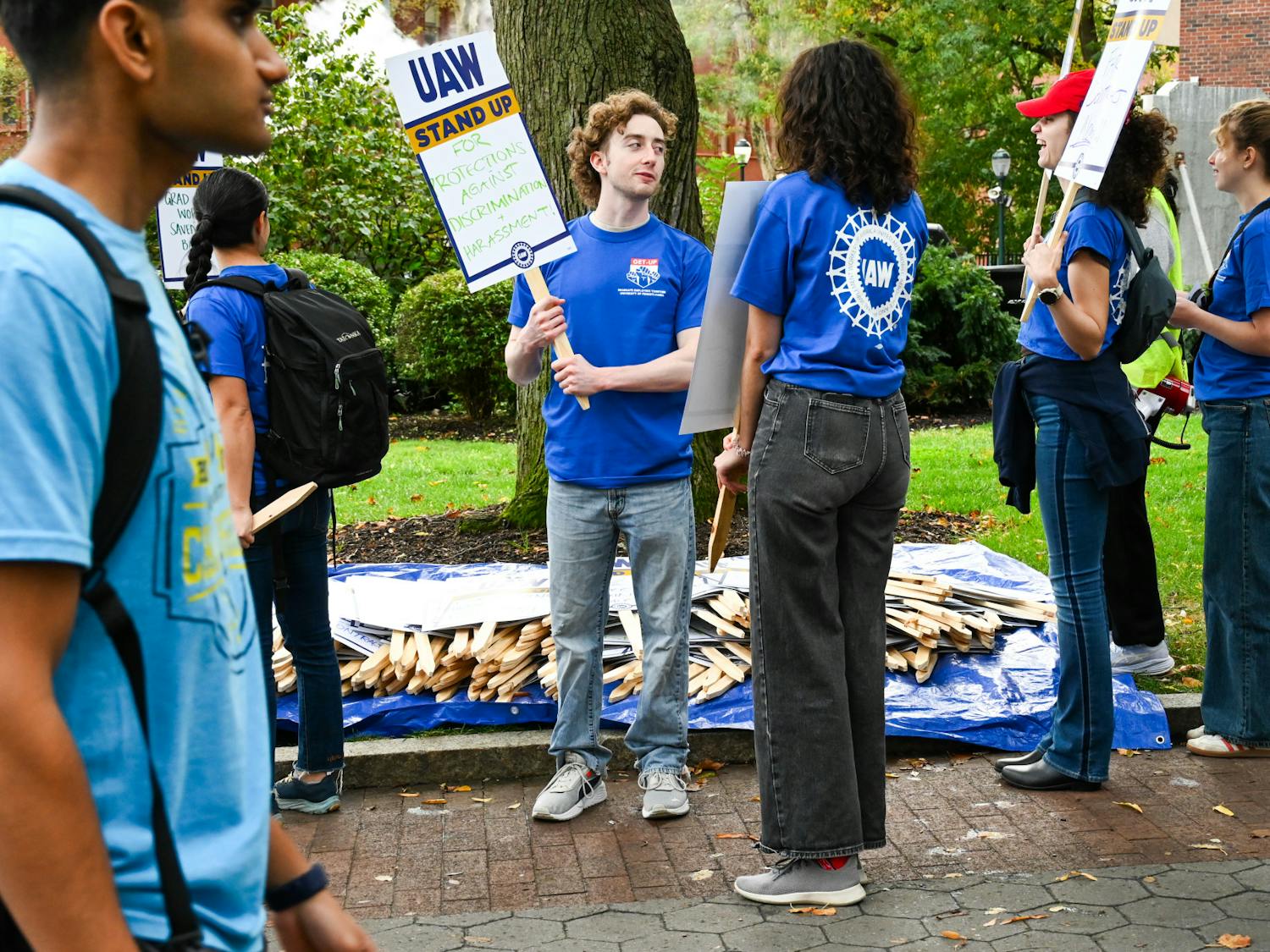Wharton’s “Beyond Business” lecture series on systemic racism concluded the semester with a discussion between a former NFL player, the president of a talent management firm representing clients of color, and Wharton Dean Erika James.
During Tuesday's panel, titled “Race and the Selling of America” and held on LinkedIn Live, James led a discussion on how corporate America is reconciling its history of profiting off of Black culture and how Black influencers can use their voices to enact change. The other two panelists discussed how they both started new projects pushing for diversity and inclusion in their respective industries this summer.
Former Oakland Raiders linebacker Kirk Morrison discussed how the May police killing of George Floyd, a Black man, was an awakening for many Americans about the pervasiveness of systemic racism, specifically for athletes. To further discussion on inequality in the U.S., Morrison started a show on SiriusXM called “Forward Progress” where he discusses race, sports, and society, and lends his platform to current and former professional athletes and coaches.
Although others have told him that sports should remain apolitical and only serve entertainment purposes, Morrison said it’s important for fans to realize that their favorite athletes face the same social issues as they do upon returning to their communities after a big game.
“It is hard to ignore what is going on,” Morrison said. “It is hard to ignore the fear that I still feel at times when I drive home, knowing that I can be mistaken or a cop can pull me over, and he’s having a bad day and decides that I fit a description. That is politics.”
When former San Francisco 49ers quarterback Colin Kaepernick began kneeling during the national anthem at games in 2016 and was attacked on Twitter by President Donald Trump, Morrison said a lot of professional sports teams turned to closely monitoring their players to avoid a “PR nightmare.” Morrison said athletes had to make the tough decision whether or not to speak their minds and stand up for their beliefs.
While the power dynamic has not shifted much between players and the team’s executives since Kaepernick's activism, Morrison believes that America has reached a point when football team owners realize how much they need to listen to their players about important social issues.
This same call for action is being made in other professional spaces as well, according to Phillip Sun, the president of the new representation firm M88. Sun left his job at a powerful talent agency to start a new firm focused on amplifying voices from diverse backgrounds. Since launching in August, he has created a client roster with well-known actors such as Michael B. Jordan.
RELATED:
Less than 95% of Wharton MBA graduates receive job offers for first time in a decade
Wharton initiative partners with Walmart for flu vaccine communication study
Sun said he recognized that he had pushed as hard as he could for inclusivity and access for people of color within the existing institution, which was not built for people who looked like him, prompting him to start his own firm.
“It got tiresome feeling like diversity and inclusion were a policy or program as an afterthought,” Sun said. “We wanted to build a firm that had those principles at the core.”
While he has seen great improvements throughout his career, Sun noted the importance of holding agencies accountable to make actual changes for a more equitable future. The panelists agreed that real change may take time, but they said they are working hard for future generations to have the ability to dream big.
“Change does not mean you have to affect 30,000 or a million people,” Morrison said. “Change can just be affecting one person. If you can change one person’s mind, then you have done your job.”
The Beyond Business series will continue with a new set of guest lectures focusing on the impacts of climate change in 2021, James said.









